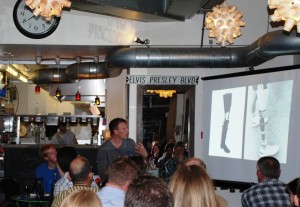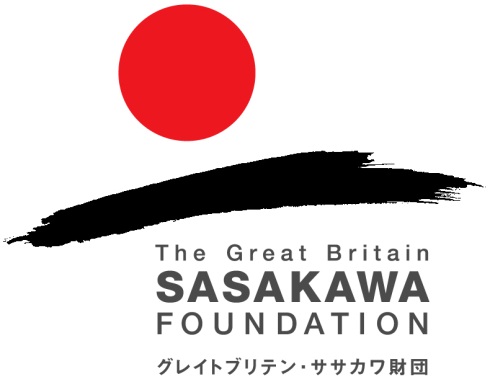 The Centre for Intellectual Property Policy & Management (CIPPM) has recently completed two reports commissioned by the UK Cabinet Office to assist the Government formulate a policy on Open Standards in Government IT Procurement. The policy was published and adopted on the 1st November 2012. http://www.cabinetoffice.gov.uk/news/government-bodies-must-comply-open-standards-principles
The Centre for Intellectual Property Policy & Management (CIPPM) has recently completed two reports commissioned by the UK Cabinet Office to assist the Government formulate a policy on Open Standards in Government IT Procurement. The policy was published and adopted on the 1st November 2012. http://www.cabinetoffice.gov.uk/news/government-bodies-must-comply-open-standards-principles
On page 8 of the Government’s document justifying its policy decision, the role of the CIPPM is explained as follows:
“The Centre for Intellectual Property Policy and Management (CIPPM) at the University of Bournemouth was commissioned to undertake the analysis of the evidence submitted. Cabinet Office has published this as an independent report (see the Cabinet Office website: http://www.cabinetoffice.gov.uk/resource-library/open-standards-consultation-documents). The methodology for the analysis is also provided.
During the course of the consultation, Cabinet Office commissioned Open Standards in Government IT: A Review of the Evidence (also available on the Cabinet Office website) by the CIPPM. The review looked at economic and legal aspects of introducing an open standards policy for government IT, including an appraisal of costs and benefits. Bournemouth University published drafts for peer review and following this it has now been published by Cabinet Office.
The independent analysis and research elements were undertaken to ensure that due consideration was given to the complex evidence base and that a neutral analysis of the consultation responses is distinguishable from the policy decisions taken by the Government in light of the consultation exercise.”
The review of the evidence on the competition and innovation effects of open standards in IT systems was led by Sally Weston, a commercial lawyer and Head of Law at Bournemouth University, and Professor Martin Kretschmer, Director of the Centre for Intellectual Property Policy and Management. They have also drawn on the expertise of economics professor Jenifer Piesse.
Dr Marcella Favale, CIPPM research fellow, led on the analysis of responses to the consultation process (which included online responses and roundtable discussions), using a social science approach combining grounded theory for identifying patterns of argument and quantifying these by type of respondent. It is highly unusual for a public consultation exercise to be analysed in the manner, treating responses as data to be analysed under a rigorous and transparent methodology. CIPPM has developed a pioneering capacity in this field.
Professor Martin Kretschmer and Sally Weston comment on their review of the evidence:
“Although there is a lack of quantitative evidence on precise cost savings from adopting open standards there are abundant examples where an open standards policy has been adopted with consequent benefits. The literature identifies few downside risks. The challenges appear to lie in the manner of implementation so that potential pitfalls, such as adopting the wrong standard, are avoided while maximising potential gains from increased interoperability, such as more competitive procurement and benefits to SMEs and citizens. The evidence does not support the need to offer intellectual property rights to write good interfaces.”
The government’s published response to the Consultation cites the CIPPM studies on pp. 9, 14, and 20:
Page 9: “The role of the Government in this instance is that of procurement rather than market intervention and the Bournemouth report highlights that in this case: ‘arguments suggesting that royalties on standards are essential to reward and encourage innovation are not clear cut and the balance of interests is in fact far more nuanced.’”
Page 14: “The review of evidence by Bournemouth University noted that patents are an important means of protecting the value of software and can be effective revenue sources for the patent owner. However, issues exist in industry for example with regards to patents trolls and patent thickets – in the UK these are best considered by the Intellectual Property Office (for example through its work on implementing the Hargreaves Review).”
Page 20: “However in terms of getting a picture of compatibility with European policies and legislation, the response from the consultation was inconclusive. Therefore, in drafting the policy and principles for open standards, we have drawn on legal and economic evidence presented in other sections to ensure that our approach is consistent with our European obligations. We have also considered the evidence presented in the Bournemouth review and drawn on the expertise of government officials in other departments.”


 Congratulations to
Congratulations to  Dr Reddy commented ‘the small grant from the Great Britain Sasakawa Foundation will hugely help me to investigate the Japanese tsunami impacts on tourism and develop local collaboration with researchers in Japan for in-depth research’. Dr Reddy is a member of
Dr Reddy commented ‘the small grant from the Great Britain Sasakawa Foundation will hugely help me to investigate the Japanese tsunami impacts on tourism and develop local collaboration with researchers in Japan for in-depth research’. Dr Reddy is a member of 




















 New Nepal scoping review on maternal & neonatal health
New Nepal scoping review on maternal & neonatal health Fourth INRC Symposium: From Clinical Applications to Neuro-Inspired Computation
Fourth INRC Symposium: From Clinical Applications to Neuro-Inspired Computation Writing policy briefs
Writing policy briefs Upholding Excellence: The Concordat to Support Research Integrity
Upholding Excellence: The Concordat to Support Research Integrity ECR Funding Open Call: Research Culture & Community Grant – Application Deadline Friday 12 December
ECR Funding Open Call: Research Culture & Community Grant – Application Deadline Friday 12 December MSCA Postdoctoral Fellowships 2025 Call
MSCA Postdoctoral Fellowships 2025 Call ERC Advanced Grant 2025 Webinar
ERC Advanced Grant 2025 Webinar Horizon Europe Work Programme 2025 Published
Horizon Europe Work Programme 2025 Published Horizon Europe 2025 Work Programme pre-Published
Horizon Europe 2025 Work Programme pre-Published Update on UKRO services
Update on UKRO services European research project exploring use of ‘virtual twins’ to better manage metabolic associated fatty liver disease
European research project exploring use of ‘virtual twins’ to better manage metabolic associated fatty liver disease